
Moreover, the automotive sector prepares for the upcoming tariff changes, with the CEO of Volkswagen’s Seat brand stepping forward before its launch in the United States.
Tesla CEO Elon Musk doesn't really go in for vacations However, during his free time, he has been actively campaigning for the Republican Party in a closely fought state supreme court election, even investing millions from his personal funds into the campaign.
In the end, though, he supported his favored candidate would lose And now, despite continuing to lead the Trump administration’s initiatives aimed at reducing the size of the federal government, Musk has to confront the stark truths of his professional life: Tesla's sales for the first quarter are anticipated to fall short of expectations.
{getToc} $title={Table of Contents} $count={Boolean}
I raise this point because following today’s events, Tesla investors might have even more doubts regarding where their CEO truly concentrates his efforts.
That kicks off today's Critical Materials roundup of tech and automotive sector updates as we anticipate a hectic day ahead. Additionally, on Wednesday, expect the arrival of new tariffs, and Volkswagen's Seat brand Loses its top leader just as it prepares to attempt dominating the United States. Let's delve into this.
30%: Elon Musk and Tesla Could Encounter Consequences Today
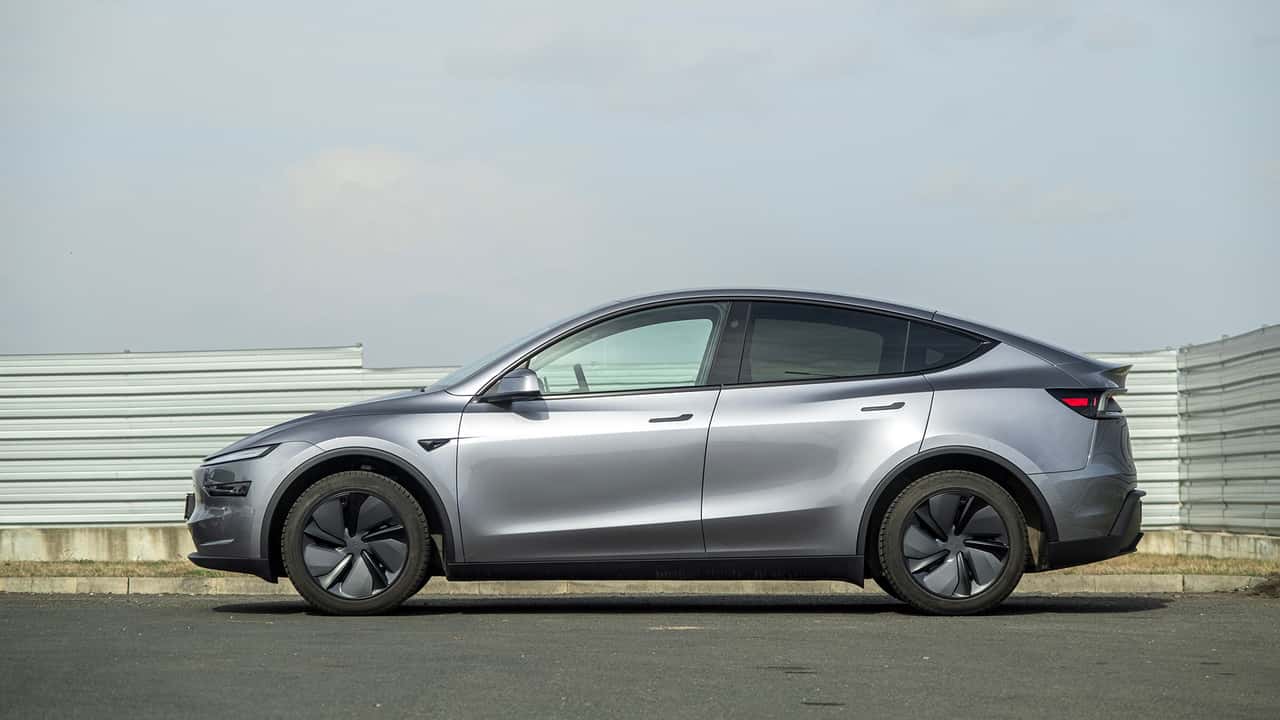
2025 Tesla Model Y Release Lineup (European Version)
For several months, Tesla has experienced declining sales in both Europe and China. European consumers have become disenchanted with the brand due to Elon Musk’s involvement in international conservative politics, while China is shifting towards domestically produced electric vehicles. The situation in the United States remains uncertain; however, it is evident that the company has faced significant demonstrations outside their dealerships each weekend since January, not just locally but worldwide as well.
This all boils down to the fact that the expectations for today's first-quarter delivery report aren’t positive. However, the unpredictable element in this scenario remains. the updated Tesla Model Y The globally top-selling electric vehicle—and according to certain measures, the outright best-selling car worldwide—is only beginning to hit the market. Numerous Tesla supporters argue that the anticipated drop in sales may be due to enthusiasts holding off for the new Model Y. Indeed, I think a significant number of potential buyers are refraining from purchasing Teslas specifically because they’re awaiting that particular model.
{getCard} $type={post} $title={You might like}
However, does this fully account for the anticipated decline in sales? Here's what Bloomberg is projecting:
In recent months, Wall Street’s expectations have significantly dropped due to CEO Elon Musk’s political moves, which triggered a customer backlash and reduced global demand for Tesla’s electric cars. The company faces additional pressures on vehicle delivery volumes because of decreased production linked to updates in their Model Y SUV, along with a slowing overall electric car market and greater economic uncertainties.
Experts anticipate that Musk's electric vehicle company probably delivered around 390,000 vehicles in the initial three months, based on estimations gathered by Bloomberg. This figure has dipped from over 460,000 anticipated back in early January by financial analysts. The projections for this period range considerably, with the highest estimate exceeding 448,000 and the lowest at roughly 315,000, highlighting the ambiguity currently enveloping Tesla’s future prospects.
Should Tesla report production and delivery numbers this Wednesday, and they match the estimated 390,000 vehicles figure, it would mark their poorest performance over four consecutive quarters. "Demand has softened significantly," observed Gene Munster, who serves as the managing partner at Deepwater Asset Management.
The figures are just part of the equation. However, the reaction from Tesla and Musk—or whether they respond at all—will likely reveal the most significant narrative in this situation.
60%: 'Liberation Day' Arrives
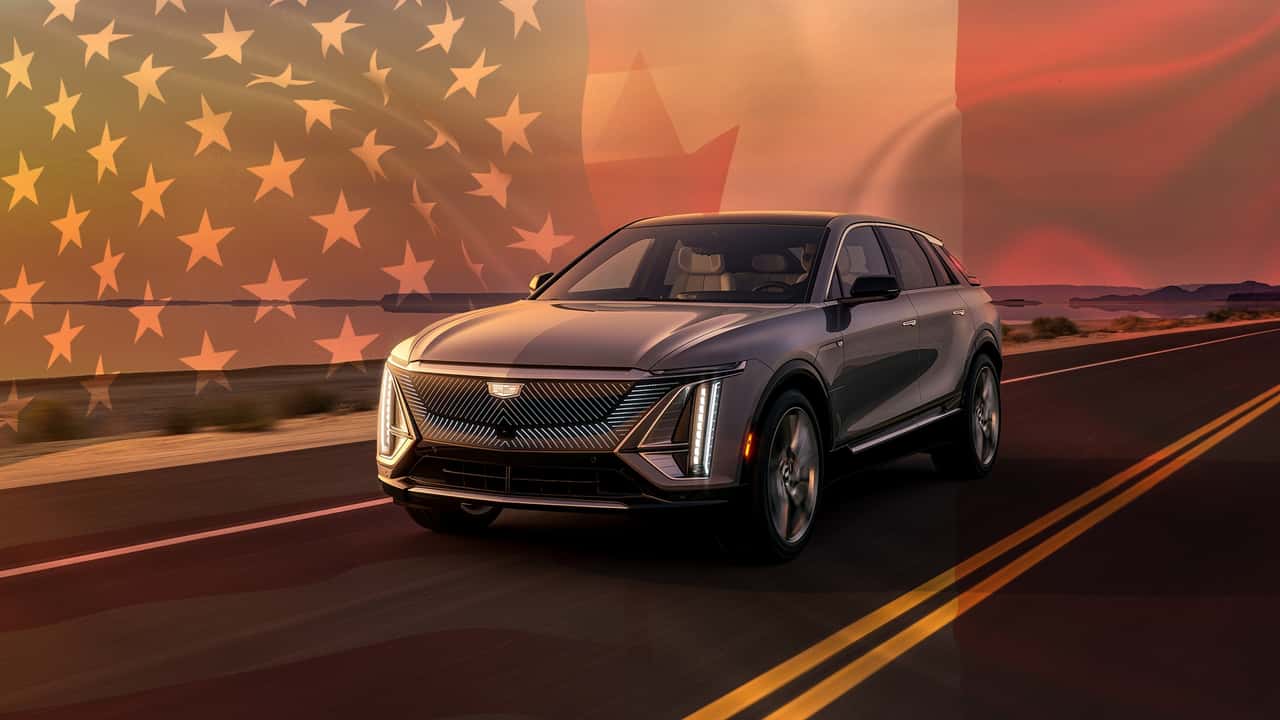
Yesterday marked April Fool’s Day, which is undoubtedly the most challenging day for those in the news industry since numerous companies we report on choose this occasion to dress up their press releases with whimsical stunts, aiming to deceive the public into believing them.
(Remember " Voltswagen I will continue to be upset about that even when I'm dead, one day.
However, I observed significantly fewer humorous, mock press releases this year. The automotive sector appears to lack its usual lightheartedness, and I believe President Donald Trump might be the reason for this shift. fulfilling his pledge for 25% duties on vehicles and components coming from outside Today is the cause of this.
Trump calls the tariff announcement "Liberation Day." He is expected to unveil this plan at a Rose Garden event at 4 p.m. EST today. But will he really go through with these plans as they've been announced? That may still be in flux. Here's the Wall Street Journal :
"I've made up my mind, yes," Trump stated in the Oval Office on Monday night when questioned about his "Liberation Day" plans, a phrase he uses for the tariffs set to be unveiled by his own deadline on Wednesday. His advisors have presented multiple proposals to him regarding potential tariffs on various nations, such as imposing a worldwide tariff of 20% on nearly all imported goods.
On Monday, several of his assistants believed he had not yet chosen a specific course of action, as per sources close to the situation. These individuals highlighted that discussions continued to evolve, and when Trump stated he had made up his mind about a strategy, it took some advisors at the White House by surprise.
If tariffs can be negotiated and potentially reduced in the future, this might cast uncertainty on just how much income will realistically result from implementing them. Although his staff aims not to appear as though they’re retreating from Trump’s campaign pledges, several advisors worry about the potential impact of these tariffs on pricing.
Regardless of your opinion of the man, he is undoubtedly a showman who excels at orchestrating spectacles and commanding attention.
The automotive sector’s intense reaction to these tariffs is extensive and deep-seated. These taxes are anticipated to increase car prices by $4,000 to $10,000 each, with electric vehicles facing an even steeper rise of about $12,000. by some estimates And these price hikes coincide with broader economic instability and rising inflation, just when automobile manufacturers must invest heavily in electric capabilities and software. Despite this challenge, even those who are already extensively active in the U.S. , or are American themselves , won't be shielded from some tariff effects since component prices will also increase.
I've been needing some quieter news days recently, definitely. We'll have more updates as they come in.
90%: Seat, Cupra CEO Exits as Brand Prepares for U.S. Launch
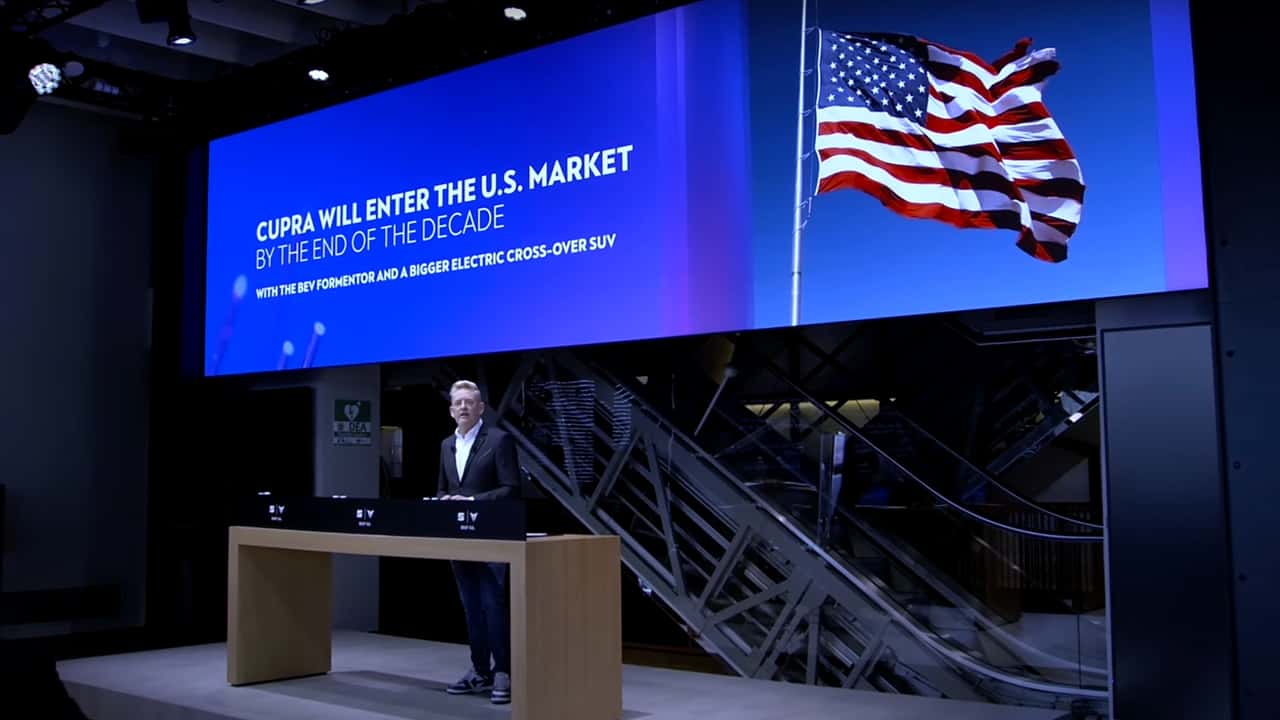
Cupra USA Announcement
When discussing worldwide business challenges, Volkswagen Group certainly faces many uncertainties. The company is experiencing declining sales in both Europe and China. Additionally, despite owning multiple brands, it hasn’t historically had significant presence in the American market. To turn this around, they plan to implement two key strategies: introducing the Scout Motors electric vehicle (EV) and extended-range electric vehicle (EREV) truck line, along with expanding Seat’s Cupra brand into the United States.
For those unfamiliar with the brands, Seat is a longstanding Spanish affiliate of Volkswagen, and Cupra was once part of Seat before becoming an independent entity focused on high-performance electric vehicles. Both Seat and Cupra have gained significant popularity in Latin American markets. Cupra is poised to make its debut in the U.S. market. By the end of the decade, through the introduction of a new brand, the VW Group aims to attract potential customers who were previously out of their reach.
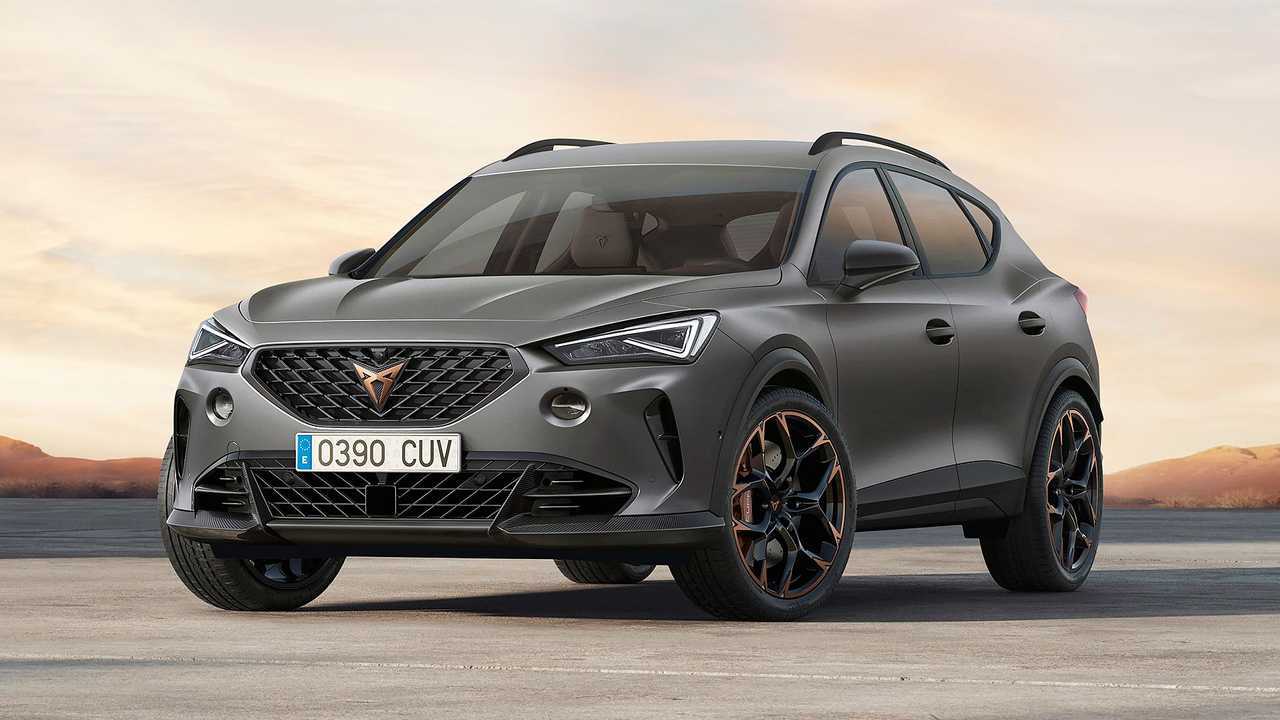
Cupra Formentor VZ5
However, should such changes occur, they would happen in the absence of the mastermind behind the complete Cupra strategy. Wayne Griffiths, who serves as both the CEO of Seat and Cupra, has left the organization. This departure appears to be voluntary; nonetheless, it has come as an immense surprise to everyone within the sector, reportedly. Fortune :
Three weeks ago, Wayne Griffiths eagerly anticipated the June launch of Cupra's flagship location in the U.K.
It won’t occur again—at least not as the leader of SEAT (pronounced SAY-at). Starting this week, he unexpectedly resigned voluntarily "to seek fresh opportunities." This announcement stunned everyone following their surprising financial success with record-breaking outcomes amidst a flatlining European automobile sector in 2024, which accounts for 90% of their overall earnings.
Griffiths was preparing the September unveiling of the Raval small EV, based off its Urban Rebel concept, and even exploring a deal to bring Cupra to the U.S. market, with local retailer Penske Automotive, by the end of the decade.
In 2018, Griffiths emerged as nothing short of a marketing virtuoso with the creation of Cupra. Unlike many well-established European marques that derive their prestige from decades of automotive legacy and competitive racing, Cupra was essentially conceived through collaboration within a corporate setting.
Thanks to Griffiths' keen sense of strategy, positioning, and design, he managed to surpass rival upscale brands such as Hyundai's Genesis, Swedish marque Polestar, France's DS, and even well-established competitors like BMW's Mini.
Fortune suggests an intriguing idea here: Could Will Griffiths get appointed the CEO of Stellantis That firm chose not to comment, yet it has been seeking a new leader since Carlos Tavares departed/left at the end of last year. This situation might turn out to be quite an intriguing development.
However, it’s evident that Griffiths considered Cupra as their own project, so the future of its expansion into the U.S. market remains uncertain, particularly with potential tariffs on the horizon. This situation leaves many questions unanswered for both InsideEVs and others following the story. Motor1 We're set to test drive some Cupra vehicles over the next few weeks during an event in Miami. Maybe we'll gain additional insights into what lies ahead for them.
100%: Will People Ultimately Pardon Elon and Tesla?
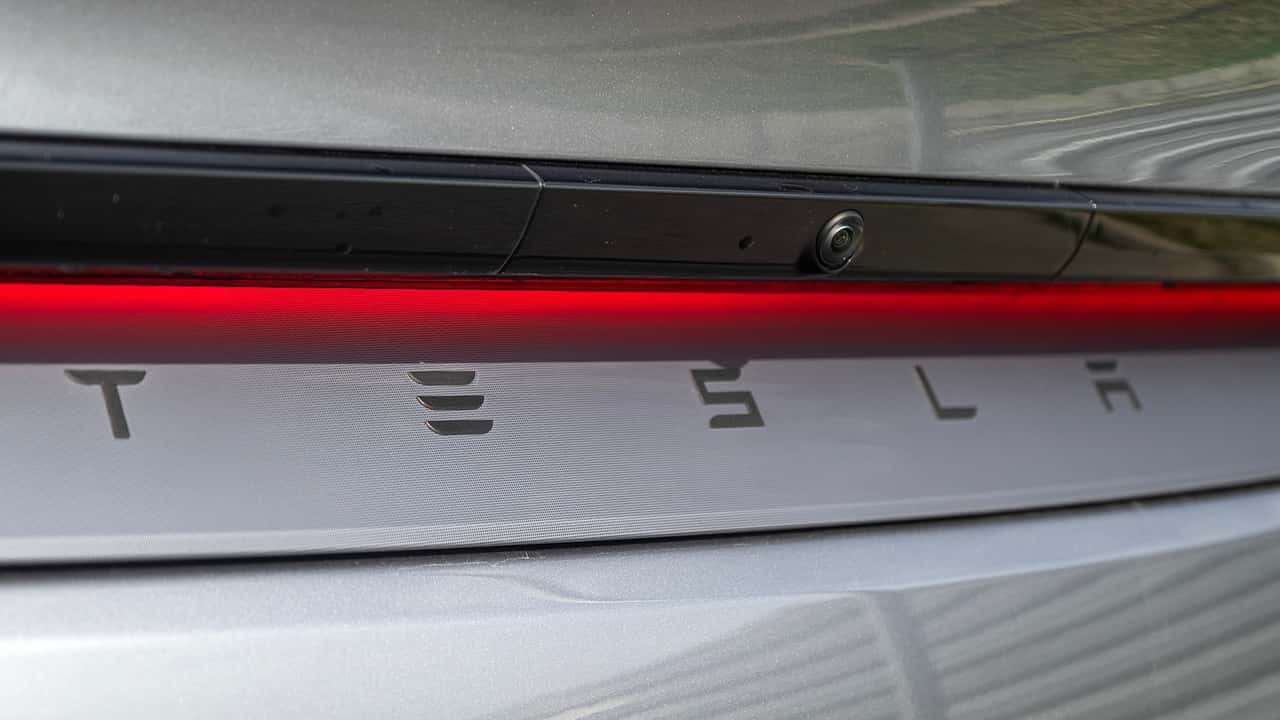
2025 Tesla Model Y Release Lineup (European Version)
Yesterday, I had an intriguing conversation with another journalist on this topic: evidently, numerous long-time enthusiasts of Tesla perceive themselves as let down and estranged due to Musk’s shift towards far-right politics and his role in reducing the size of the federal workforce. The question remains whether these individuals will eventually reconcile with the brand and continue their support.
{getCard} $type={post} $title={You might like}
Suppose Musk shifts his attention away from Dogecoin, as he claims he will do, and refocuses on Tesla instead. Alternatively, he might reduce his involvement in political discussions publicly. In an even more drastic scenario, the Tesla board could decide the company requires a different leader. Would consumers then revert to their previous loyalty to the brand, or would Tesla face significant challenges regaining the customer base it desperately needs? It’s clear that customers aren’t regularly demonstrating outside Tesla stores unless something deeply troubling has occurred. On the flip side, American consumer sentiment can change rapidly—often within just a few days—and numerous brands have managed to recover after experiencing crises themselves.
Would everyone simply overlook all of this someday? What would be required for that to occur? Tell us your thoughts in the comments section.
